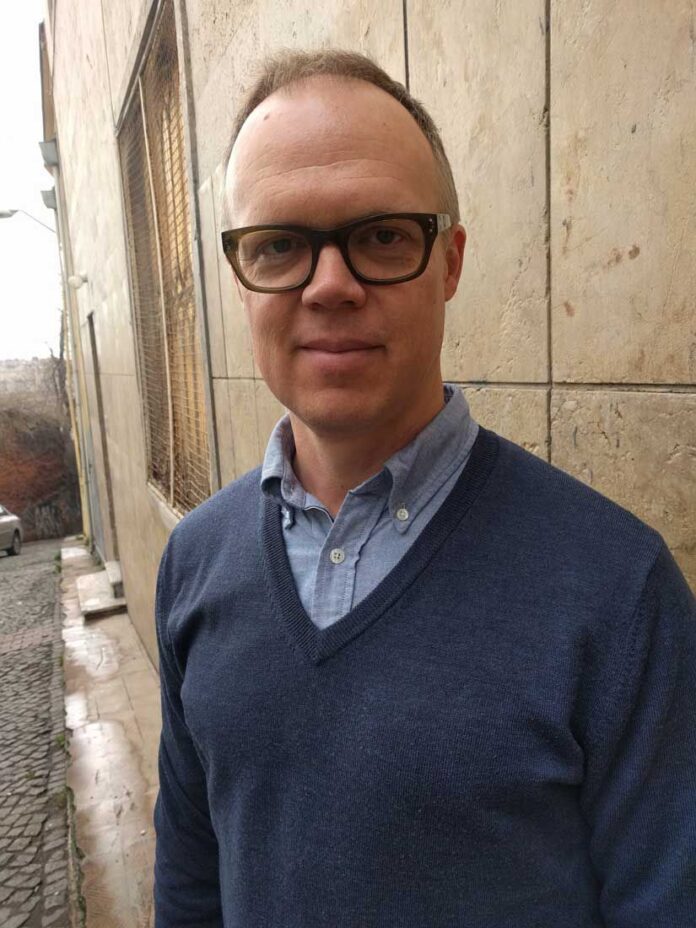BY Vicky Brito
Dr. Matthew Christensen, professor of literature and cultural studies at UTRGV, has been selected as a 2017 American Council of Learned Societies Fellow.
Christensen is one of 71 fellows selected from among nearly 1,200 candidates by a rigorous, multi-stage, peer review process.
The fellowship is open to faculty in all fields of the humanities and lettered social sciences.
“I am thrilled and a bit shocked to have been selected,” Christensen said. “It is a tremendous honor for me personally and as a representative of UTRGV to have been selected by my peers nationwide for this prestigious fellowship.”
The ACLS fellowship gives its recipients financial resources to focus solely on research and writing, thus relieving professors of their teaching duties for one year.
Christensen will split his time between London, New York City and Mainz, Germany, during the 2017-2018 academic year.
“I will use my fellowship to complete research for a scholarly book I am writing about African literature,” Christensen said. “I plan to spend time at the University of London’s School of Oriental and African Studies Library, and at the Jahnheinz Jahn Library of African Literature at Johannes Gutenberg University in Mainz, Germany.”
His appointment begins Sept. 1, 2017.
ABOUT THE ACLS
ACLS is a distinguished representative of American scholarships in the humanities and related social sciences. The organization is a private, non-profit federation of 74 national scholarly organizations. The ACLS Fellowship program is the longest-running of the organization’s current fellowship and grant programs.
“The 2017 ACLS Fellows represent more than 50 colleges and universities and an array of humanities disciplines and methodologies,” said Matthew Goldfeder, ACLS’s director of fellowship programs. “The awardees were selected for their potential to bring new understandings of the human experience and creativity, from antiquity to the present, in contexts across the globe. We are grateful to be able to support the intellectual vitality and rigor of humanistic inquiry at this challenging moment.”




